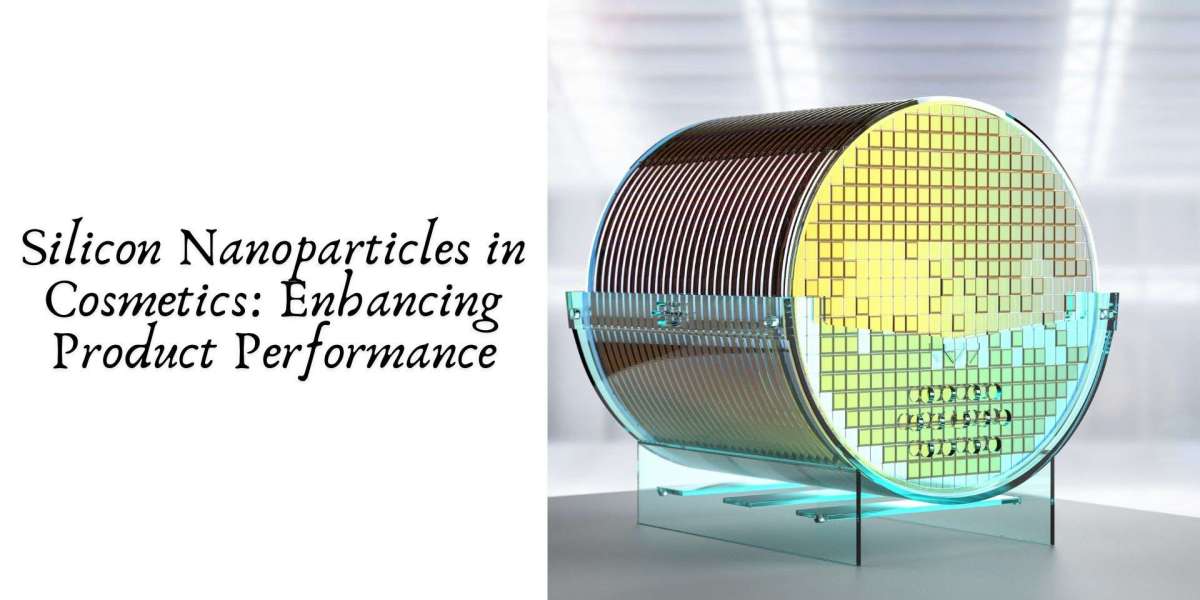The cosmetic industry is constantly evolving, driven by consumer demand for more effective, long-lasting, and safer beauty products. One of the most exciting innovations in recent years is the incorporation of nanotechnology, particularly silicon nanoparticles (SiNPs), into cosmetic formulations. These tiny particles are revolutionizing the way cosmetics perform, offering numerous benefits such as improved texture, better absorption, and enhanced durability. In this article, we will explore how silicon nanoparticles are being used in cosmetics, their benefits, safety concerns, and future trends in the industry.
Understanding Silicon Nanoparticles
Silicon nanoparticles are ultra-fine particles of silicon, typically ranging from 1 to 100 nanometers in size. At this scale, the properties of materials can change significantly, often enhancing their performance in ways that are not possible at larger scales. In cosmetics, silicon nanoparticles are prized for their ability to improve the formulation, efficacy, and sensory experience of various products, from skincare creams to makeup.
Silicon itself is a versatile element found abundantly in nature, often in the form of silica or silicon dioxide (SiO₂). The nanoparticles derived from silicon offer unique properties like increased surface area, enhanced reactivity, and the ability to interact more efficiently with other ingredients in cosmetic products.
The Role of Silicon Nanoparticles in Cosmetics
Improved Texture and Sensory Experience
One of the key reasons silicon nanoparticles are favored in cosmetics is their ability to improve the texture of products. When added to creams, lotions, and makeup, these nanoparticles create a smoother, more velvety finish. Their small size allows them to fill in tiny crevices on the skin, resulting in a more even application of the product. This makes silicon nanoparticles particularly useful in foundation and primer products, where a flawless finish is desired.
Enhanced Absorption and Bioavailability
Silicon nanoparticles can enhance the absorption of active ingredients in skincare products. Due to their small size, they can penetrate the skin’s outer layers more easily, delivering active ingredients like vitamins, antioxidants, and peptides more effectively. This leads to improved product performance, as the skin can absorb and utilize these beneficial compounds more efficiently.
Extended Product Durability
Another significant advantage of silicon nanoparticles is their ability to extend the wear time of cosmetic products. Whether it’s makeup or sunscreen, products containing silicon nanoparticles tend to last longer on the skin, resisting factors like sweat and environmental exposure. This makes them ideal for long-wear makeup formulations, sunscreens, and moisturizers that need to stay effective throughout the day.
Oil Control and Matte Finish
Silicon nanoparticles are excellent at absorbing excess oil, making them a popular choice for mattifying products. Foundations, powders, and primers that contain silicon nanoparticles can help control shine and create a matte finish without clogging pores or causing breakouts. This is especially beneficial for individuals with oily or combination skin who want to maintain a fresh, oil-free look throughout the day.
Improved UV Protection
In sunscreens and other UV-protection products, silicon nanoparticles can enhance the effectiveness of UV-blocking ingredients like titanium dioxide and zinc oxide. By improving the distribution of these particles on the skin, silicon nanoparticles ensure more uniform coverage, reducing the risk of sunburn and skin damage. Their transparency also addresses the common complaint of white residue left by traditional sunblocks.
Increased Stability and Shelf Life
Silicon nanoparticles can improve the stability of cosmetic formulations, preventing the degradation of active ingredients over time. This not only extends the shelf life of the product but also ensures that it remains effective until the end of its use. This benefit is particularly important for products containing sensitive ingredients, such as vitamin C or retinol, which can degrade quickly when exposed to light and air.
Applications of Silicon Nanoparticles in Cosmetic Products
Skincare Products: Silicon nanoparticles are commonly used in anti-aging creams, serums, and moisturizers to enhance absorption and deliver active ingredients more effectively. They also improve the texture and feel of the product, making it more appealing to consumers.
Makeup: Foundations, primers, and powders often contain silicon nanoparticles to create a smooth, flawless finish. They help to blur imperfections, control oil, and extend the wear time of makeup.
Sunscreens: Silicon nanoparticles enhance the performance of UV-blocking ingredients, providing more even coverage and reducing the appearance of white residue on the skin. Their ability to improve product stability also ensures long-lasting protection.
Haircare: In haircare products, silicon nanoparticles are used to improve the delivery of conditioning agents and to enhance shine and smoothness. They can also help protect hair from environmental damage and heat styling.
Safety Concerns and Regulatory Considerations
While the benefits of silicon nanoparticles in cosmetics are numerous, their use has also raised concerns regarding safety. The small size of nanoparticles allows them to penetrate deeper into the skin, leading to questions about potential toxicity and long-term effects. However, most studies indicate that silicon nanoparticles are generally safe for topical use in cosmetics.
The European Union and other regulatory bodies have established guidelines to ensure the safe use of nanomaterials in cosmetics. Manufacturers are required to list nanomaterials in the ingredient list of products and demonstrate their safety through rigorous testing. Silicon nanoparticles are typically considered non-toxic and non-irritating when used in appropriate concentrations.
The Future of Silicon Nanoparticles in Cosmetics
As consumer demand for high-performance cosmetics continues to grow, the use of silicon nanoparticles is expected to expand. Researchers are continually exploring new ways to harness the unique properties of these nanoparticles, potentially leading to even more innovative applications in the future.
Personalized Skincare: Silicon nanoparticles may play a role in the development of personalized skincare products, where active ingredients are tailored to an individual’s specific skin needs and delivered more effectively.
Sustainable Formulations: As sustainability becomes a key concern in the cosmetics industry, silicon nanoparticles may contribute to the development of more eco-friendly formulations. Their ability to enhance the efficacy of active ingredients could reduce the need for higher concentrations of certain chemicals, leading to more sustainable product development.
Nanoparticle Coatings: Researchers are also investigating the use of silicon nanoparticles as coatings for other cosmetic ingredients, potentially improving their stability and performance. This could lead to the creation of even more advanced formulations that offer superior protection, absorption, and longevity.
Conclusion
Silicon nanoparticles are transforming the cosmetics industry by enhancing the performance, texture, and longevity of beauty products. From improved absorption and bioavailability to oil control and UV protection, these tiny particles offer numerous benefits that appeal to both consumers and manufacturers. As research continues and safety standards evolve, silicon nanoparticles are likely to play an even greater role in the future of cosmetics, pushing the boundaries of what’s possible in beauty and skincare.








